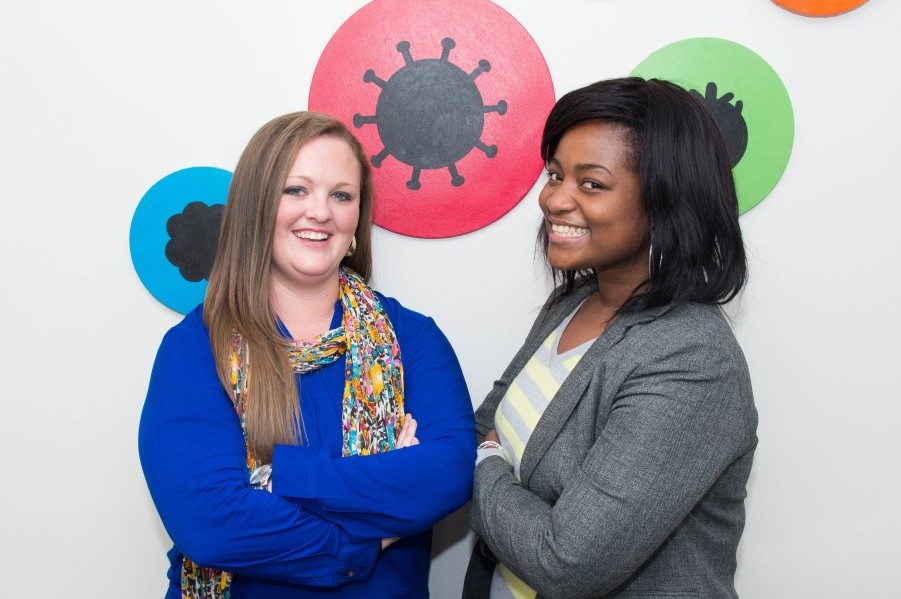Health advocates share a passion for community wellness
In June 2013, Mautner Project and Whitman-Walker Health (WWH) made the announcement of the two organizations joining forces to expand patient outreach and services. Since last year, Mautner Project of WWH has continued to stay true to their mission.
Though there were some questions and concerns with the collaboration, there has not been one Mautner service or program that has ended. In fact, the partnership has allowed for Mautner to expand their medical services to their lesbian, bisexual, and transgender clients.
Meghan Davies and Ramatoulaye Keita are two of 164 employees leading the charge in community health. Davies is the Director of Community Health for Mautner Project of WWH and Whitman-Walker Health, overseeing education, outreach, and wellness programs. She describes it as her “dream job”. Keita is a Community Health Educator at Mautner-Project of WWH, providing direct services to clients through patient navigation, HIV testing and counseling, community outreach, and education.
These two health advocates are focused on making sure the LGBTQ community knows WWH is a culturally competent organization dedicated to serving and supporting the needs of the community.
WWH offers many services and programs, including addiction services, counseling, HIV testing, walk-in medical services for registered patients, and cancer screenings, just to name a few. Through programs like MOVE (Making Our Vitality Evident), PALS (People Advocating for LGBT Seniors), and Patient Navigation/Client Services, Mautner Project of WWH is able to advocate for the LGBTQ community with a special expertise in lesbian and bisexual health.
Weight gain and unhealthy lifestyles are seen more in lesbian and bisexual women than their heterosexual counterparts. With this in mind, Mautner created the MOVE Program for women who want to get in shape in a supportive environment. The four-month program gives participants a free personal nutrition consultant, a free personal trainer assessment, a weekly group meeting, and a free four-month gym membership.
“With help of Whitman-Walker’s clinical database, we were able to recruit 40 women; 20 for the D.C. group and 20 for the Silver Spring group,” says Keita. “Achieving health at any size and not letting society dictate what health is for them is a success that most of the women had in common.”
Many of last year’s MOVE participants still get-together for healthy potluck dinners, fitness workouts, and plan on being in attendance for the 2014 Mautner Project Gala. The organization hopes the program will be an ongoing service throughout the year, instead of seasonal.
PALS is a free program connecting trained volunteers with LGBT seniors, ages 55 and older. The goal of the program is to increase individuals’ ability to age in their own homes and communities, and minimize the social isolation experienced by many senior LGBT people.
“PALS provides our senior clients with companionship, and allows them to age with dignity,” says Davies. “We are always looking for funding and volunteers.”
Davies and Keita joke about their original apprehension about the Mautner and WWH merger. However, their sense of humor and rapport is a great reflection of the strength of the overall partnership.
“As the Director of Community Health, I was nervous about the collaboration,” Davies jokes. “But it’s been a lot of fun. The collaboration has gained us a better sense of community. We are incredibly committed to Mautner. We are intertwining and growing. It’s really been a dream.”
Looking ahead, Mautner Project of WWH continues to be dedicated to their breast cancer initiative (Mammovan), Client Services/Patient Navigation, allowing them to drive clients to appointment and chemotherapy, the MOVE Program, and PALS. The organization is committed to being a full community health center for all LGBTQ individuals.
“We have more training and we are more credible,” says Keita. “Now, we are able to serve more people, which was always the goal.”


